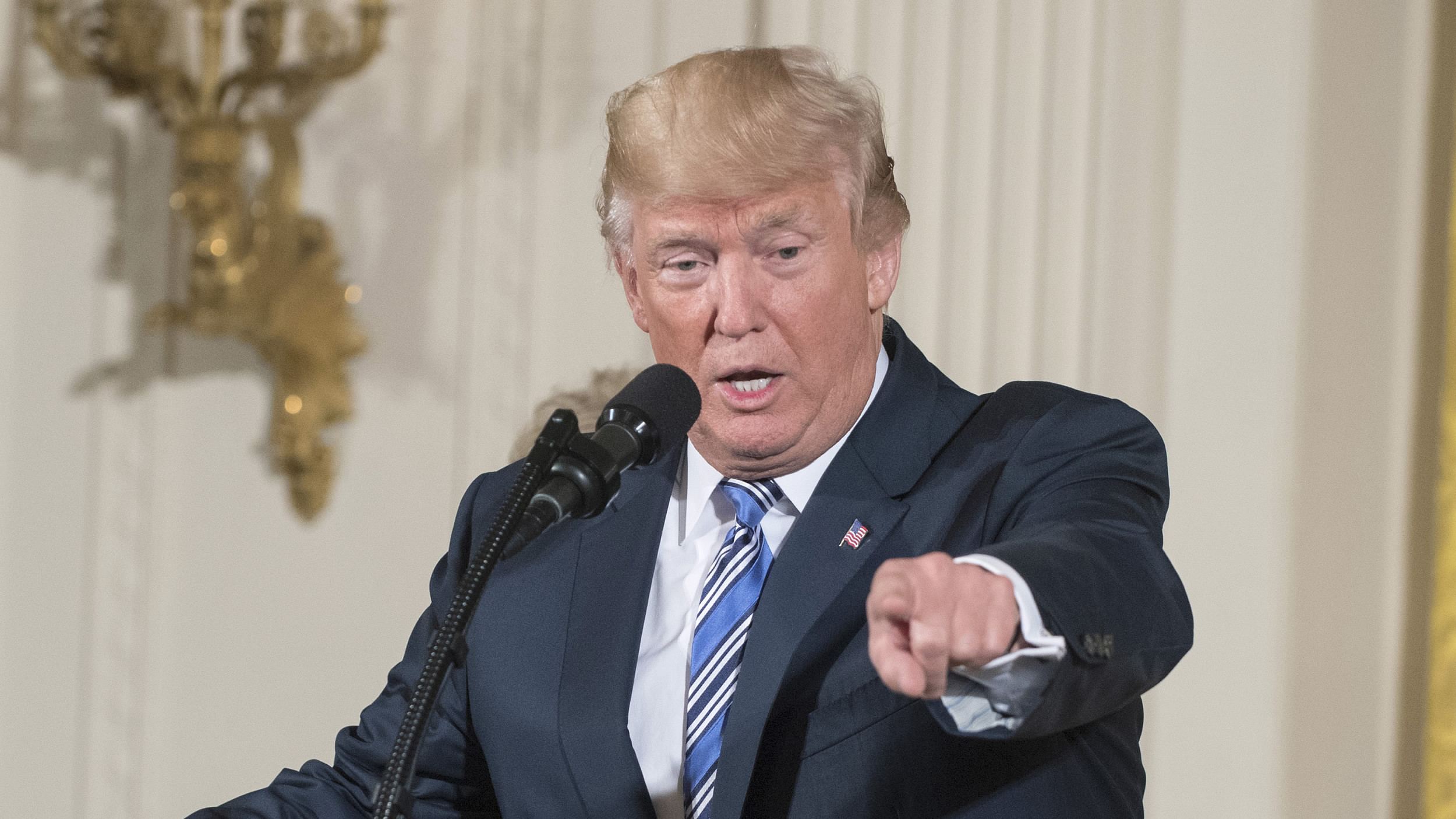
Business
16:48, 21-Aug-2017
US business economists fret over Trump policy agenda
CGTN

US business economists worry about the prospects for President Donald Trump's policy agenda, and the potential damage to the economy from his trade and immigration policies, according to a survey released by National Association for Business Economists Monday.
The survey findings add to Trump's accelerating alienation with the business community. CEOs fled his advisory councils last week to distance themselves from his both-sides-are-to-blame response to a white supremacist rally in Virginia although the survey was completed more than a week before the events.
While the survey showed most economists judge fiscal policy to be "about right" currently, they "quite pessimistic about prospects for 'meaningful, revenue-neutral tax reform' in the near term."
Unfavorable scores
Conducted July 18 to August 2 with 184 members, the survey showed only a 10 percent probability of such legislation this year and a 15 percent (median) probability of passage in 2018.
Business economists also worry about the "unfavorable consequences" of Trump's trade and immigration policies.
In those areas "survey participants give the administration unfavorable scores," said NABE Policy Survey Chair Richard DeKaser, who also is executive vice president and corporate economist at Wells Fargo.
Nothaft, chief economist at CoreLogic, explained that anything that clouds the environment for businesses to make investment decisions, whether for exports or imports, can cause firms to delay spending and impact the economy.
Meanwhile, restrictions on immigration hurt companies that are having trouble finding workers, notably in homebuilding and high-tech.
Yellen out
On monetary policy, the survey showed economists now have a much stronger belief compared to six months ago that the Federal Reserve will raise the benchmark interest rate one more time this year.
While 61 percent said monetary policy was "about right," 53 percent are expecting a third rate hike, NABE said, although there is less agreement about next year.
In contrast, market economists have become increasingly doubtful about the prospects for another move, which was expected in December, given persistently low inflation even amid historically low unemployment rates. Even central bankers are divided about how fast to move rates.

Federal Reserve Chair Janet Yellen testifies on US economy on July 12. / VCG Photo
Federal Reserve Chair Janet Yellen testifies on US economy on July 12. / VCG Photo
However, 67 percent expect Trump to replace Fed Chair Janet Yellen when her four-year term ends February 3.
About half expect White House economic adviser Gary Cohn to replace her, although the survey was completed before this week's rumors – denied by the White House – that Cohn was planning to resign.
Meanwhile, most economists see only a 10 percent chance Congress will fail to take action to raise or suspend the limit on government borrowing, before the US defaults on its debts. The government is expected to hit the debt ceiling in middle of October.
Source(s): AFP

SITEMAP
Copyright © 2018 CGTN. Beijing ICP prepared NO.16065310-3
Copyright © 2018 CGTN. Beijing ICP prepared NO.16065310-3